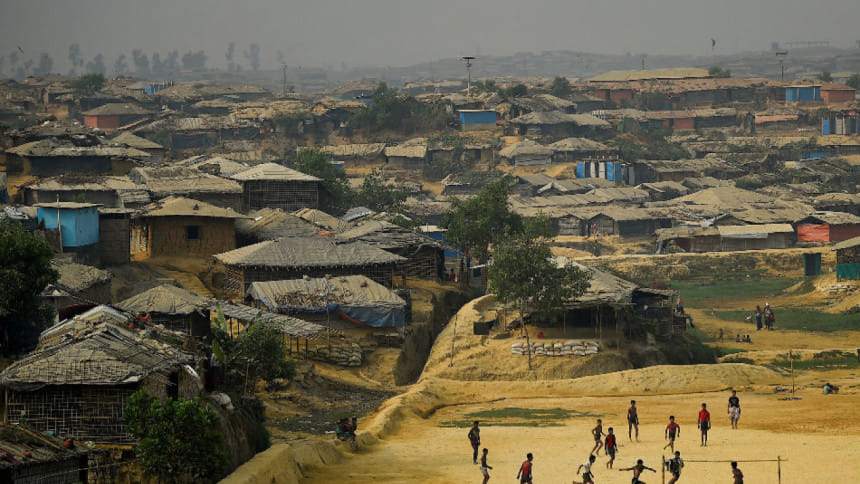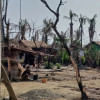The Rohingya crisis persists

It's been nearly two years since more than seven lakh Rohingya people have entered Bangladesh having fled violent crackdown in Myanmar. There's no viable solution in sight. As Myanmar continues to procrastinate when it comes to the repatriation, signs on the ground suggest a dismal prospect: the Rohingya crisis is deepening.
Hundreds of thousands of refugees are currently sheltered in several vast camps, spanning several Upazillas in Cox's Bazar. Their lack of access to education, income-generating activities and recreation is affecting them psychologically. On the other hand, having so many refugees in a relatively small area has created societal tensions and hurt the local environment. Bangladesh, therefore, is reluctant to pursue programmes that may act as pull factors.
While Bangladesh is faced with a complicated conundrum, Myanmar isn't pressurised enough to repatriate its nationals. It has employed delaying tactics to evade its responsibility to take back the Rohingyas.
As we have repeatedly stressed, the international community must come down heavily on Myanmar for its ethnic cleansing operations against the Rohingya and its refusal to take its nationals back with their full rights guaranteed.
The world's reluctance to take stringent measures against those responsible for the genocidal crackdown allows Myanmar's military to act with impunity. Its new crackdown targeting other ethnic groups has already prompted new exodus of Buddhist community to Bangladesh. UN must engage with Myanmar's closest allies to persuade it to shun violence and take back its citizens.

 For all latest news, follow The Daily Star's Google News channel.
For all latest news, follow The Daily Star's Google News channel. 








Comments